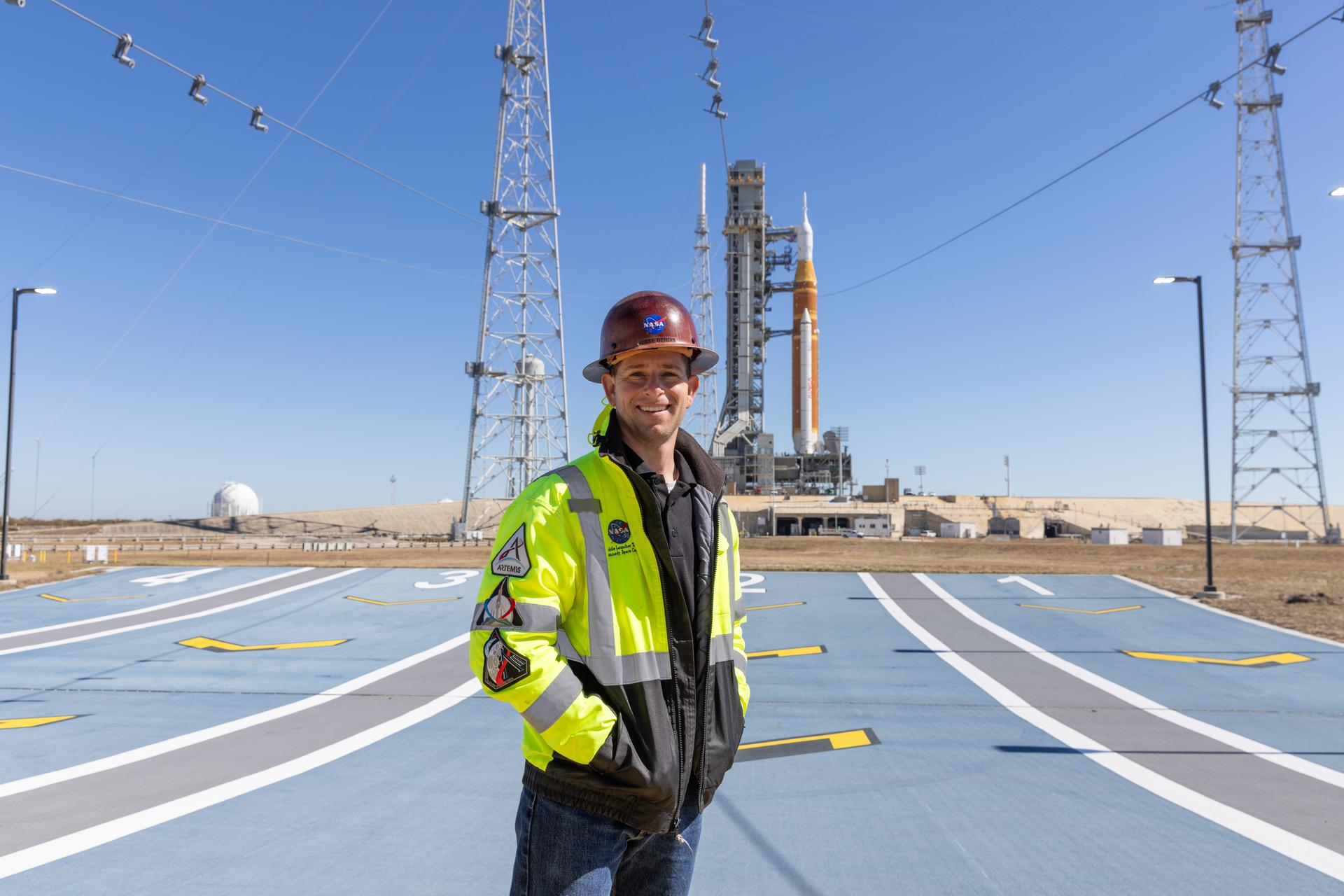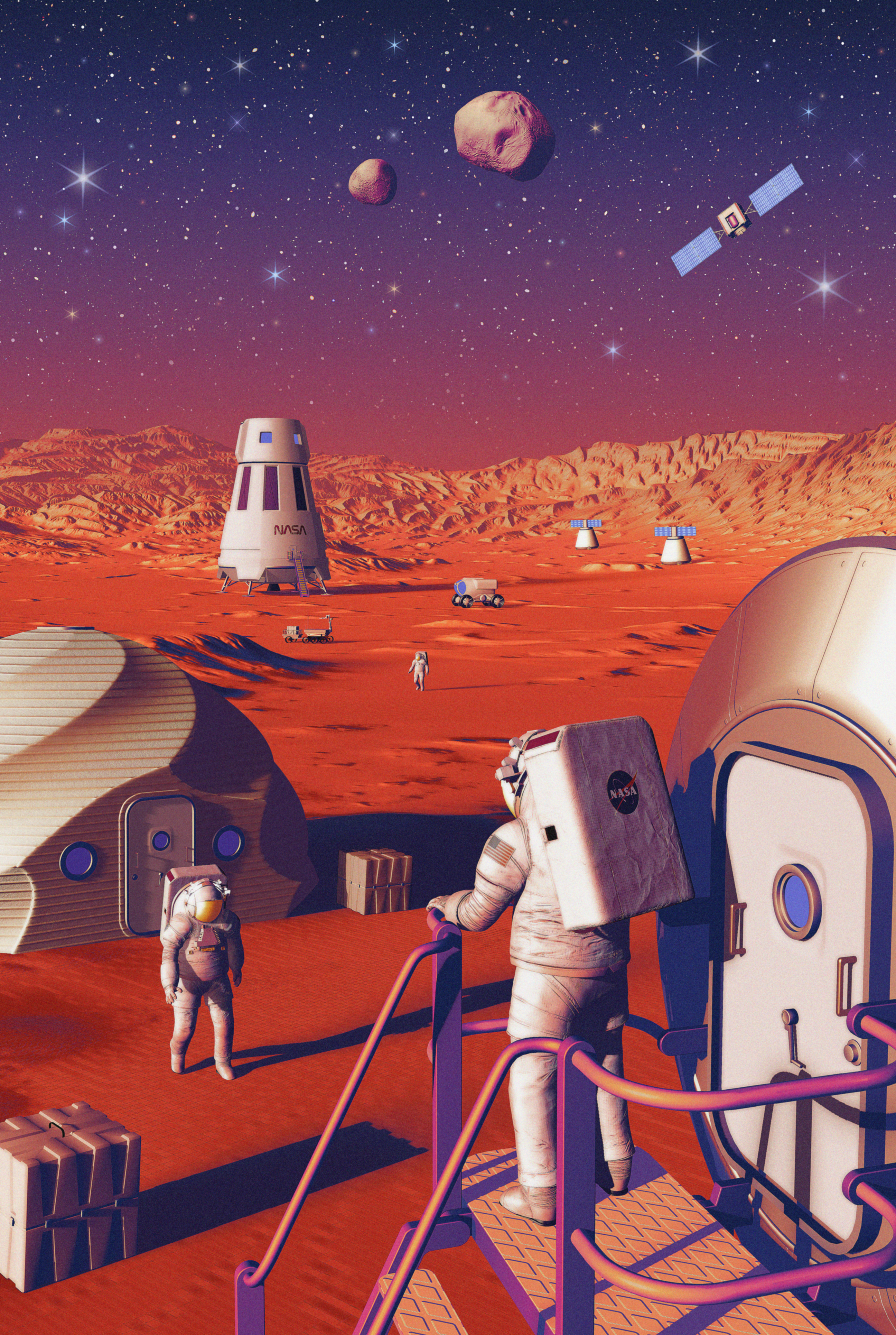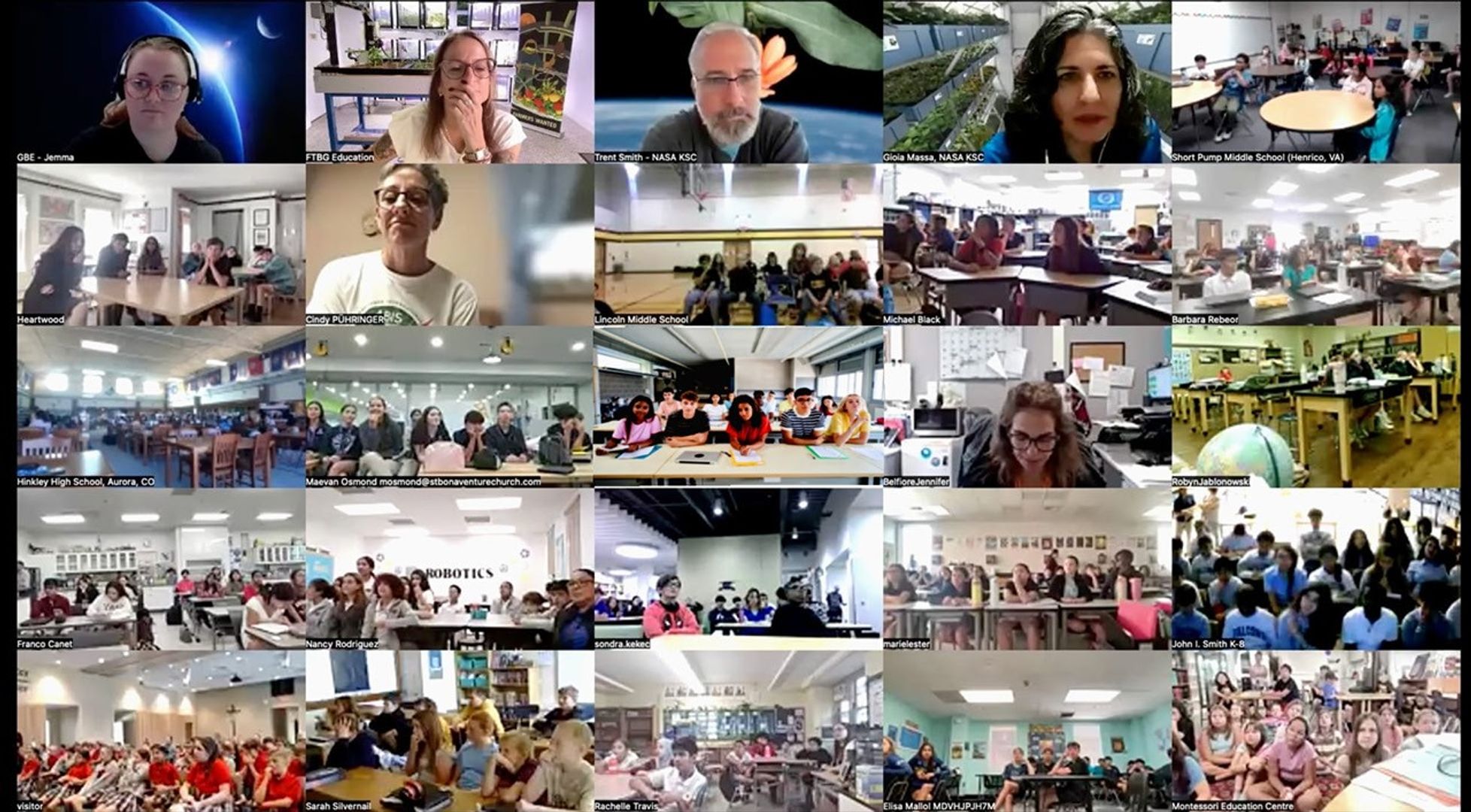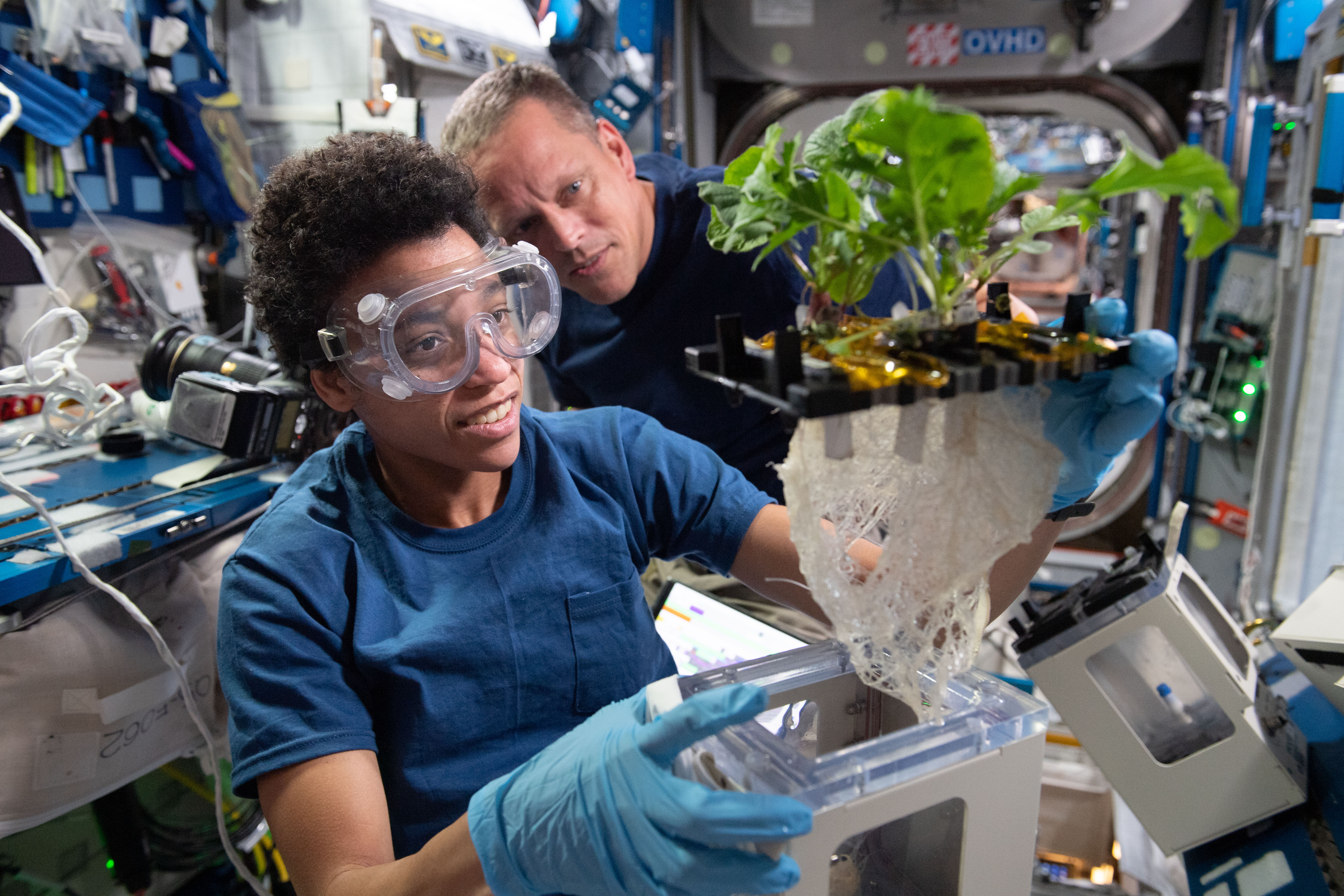NASA announces the award of 10 grants or cooperative agreements for exciting new Space Biology research that will advance NASA’s understanding of how living systems respond, acclimate, and adapt to the space environment in support of human space exploration.
As human exploration prepares to go beyond Low Earth Orbit, Space Biology is shifting its research priorities towards work that will enable organisms to Thrive In DEep Space (TIDES). These efforts will focus on determining the effects of multiple deep-space stressors (e.g., radiation & reduced gravity) on multiple organisms. This work will support animal research (vertebrate and invertebrate) that will enable us to better understand human responses to the deep-space environment. The plant research will support human exploration either through the eventual production of micronutrients and food during deep-space missions, or the establishment of bioregenerative life support systems. The goal of the TIDES initiative is to enable long-duration missions and improve life on Earth through innovative research.
The awarded proposals include both ground-based and International Space Station studies and will use different model systems to understand how the multiple variables of the spaceflight environment impact plant and animal biology/physiology and the relationships of some of these models with their respective microbial ecosystems. Selected studies include (but are not limited to) efforts to 1) understand plant/pathogen interactions in spaceflight, 2) identify optimal conditions for growing plants in hostile environments including those involving low pressure and altered gravity or radiation, 3) understand how the spaceflight environment effects animal muscle physiology and energy metabolism, and 4) provide insights into how space travel impacts an animal host and its microbiome, both individually and together.
Ten investigators will conduct these space biology investigations from eight institutions in seven states. Five of these awards are to investigators new to the Space Biology Program. When fully implemented, about $9 million will be awarded in fiscal years 2022-2025.
Dawn Bowles, Ph.D. Duke University
A Multi-omics and multi-species examination of combined environmental stressors of space exploration
Natasha Haveman, Ph.D. University of Florida, Gainesville
Developing A System for Rapid Diagnosis of Plant Diseases and Monitoring of Plant Microbiome for Spaceflight Applications
Christopher Mason, Ph.D. Weill Medical College of Cornell University
Spatiotemporal Mapping of the Impact of Spaceflight on the Heart and Brain
Karen Ocorr, Ph.D. Sanford Burnham Prebys. Medical Discovery Institute
Integrated physiological responses of CNS and muscle in Drosophila and C. elegans along a gravity continuum
Anna-Lisa Paul, Ph.D. University of Florida, Gainesville
Hypobaric Plant Biology in Space Exploration - Molecular Responses of Arabidopsis to Combined effects of Low Atmospheric Pressures and Microgravity of Spaceflight Vehicles
Andrew Schuerger, Ph.D. University of Florida, Gainesville
Microgravity Can Down-Regulate Host Resistance and thus May Up-Regulate Plant Disease Development in Space
Hansjorg Schwertz, Ph.D. University of Utah, Salt Lake City:
Megakaryocytes Orbiting in Outer Space and Near Earth: The MOON Study
Siva Vanapalli, Ph.D. Texas Tech University, Lubbock
Impact of the gut microbiome on the integrative physiology of genetically diverse invertebrates
Kellie Walters, Ph.D. University of Tennessee, Knoxville
Modeling leafy greens physiological and biochemical responses to light intensity and successive harvest
Agata Zupanska, Ph.D. SETI Institute
From Antarctica to Space: molecular response and physiological adaptation of moss to simulated deep space cosmic ionizing radiation and spaceflight microgravity.
































